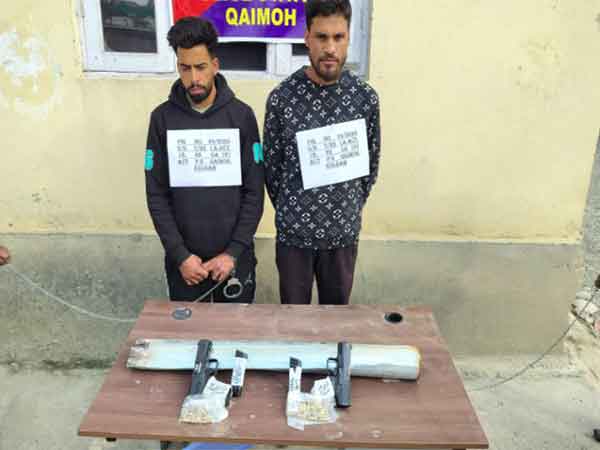
Iranian FM speaks with Pakistan's deputy PM, urges restraint amid India-Pakistan tensions
Apr 26, 2025
Tehran [Iran], April 26 : In a significant diplomatic outreach, Pakistan's Deputy Prime Minister and Foreign Minister Muhammad Ishaq Dar spoke by telephone with Iranian Foreign Minister Seyed Abbas Araghchi on Friday evening, exchanging views on recent developments between Pakistan and India, Iran's Ministry of Foreign Affairs stated in a post on X (formerly Twitter).
The conversation focused on the evolving regional situation and efforts to maintain peace.
https://x.com/IRIMFA_EN/status/1915988600648241174
During the phone call, Dar briefed Araghchi on the latest tensions between Islamabad and New Delhi, highlighting Pakistan's perspective on the unfolding events. He also expressed appreciation for Iran's "constructive and responsible approach" toward managing the delicate situation between the two neighbouring countries.
The Iranian foreign minister, while clarifying Tehran's position, conveyed his regret over the rising tensions in the region. Araghchi emphasised the importance of "restraint and patience by both sides" in order to manage the crisis effectively. He reiterated Iran's strong and friendly relations with both Pakistan and India, underlining Tehran's commitment to peace and stability. Araghchi further declared Iran's readiness to extend its "goodwill efforts" to help reduce tensions and promote regional stability.
The backdrop of this diplomatic engagement is the deep-rooted civilisational and cultural ties that Iran shares with both India and Pakistan. India and Iran, in particular, maintain a contemporary relationship strengthened by centuries-old historical connections, high-level exchanges, robust trade and commercial cooperation, and thriving people-to-people interactions.
Trade remains a vital link between India and Iran, with India ranking among Iran's top five trading partners in recent years. Key Indian exports to Iran include rice, tea, sugar, pharmaceuticals, manmade staple fibres, electrical machinery, and artificial jewellery. In return, India imports products such as dry fruits, inorganic and organic chemicals, and glassware from Iran.
Cultural exchanges also remain strong, with the Swami Vivekananda Cultural Centre (SVCC) in Tehran playing an active role in promoting ties since its establishment in 2013. Tourists from both countries continue to visit major destinations across India and Iran, reinforcing the enduring bonds that span generations and geographies.




























